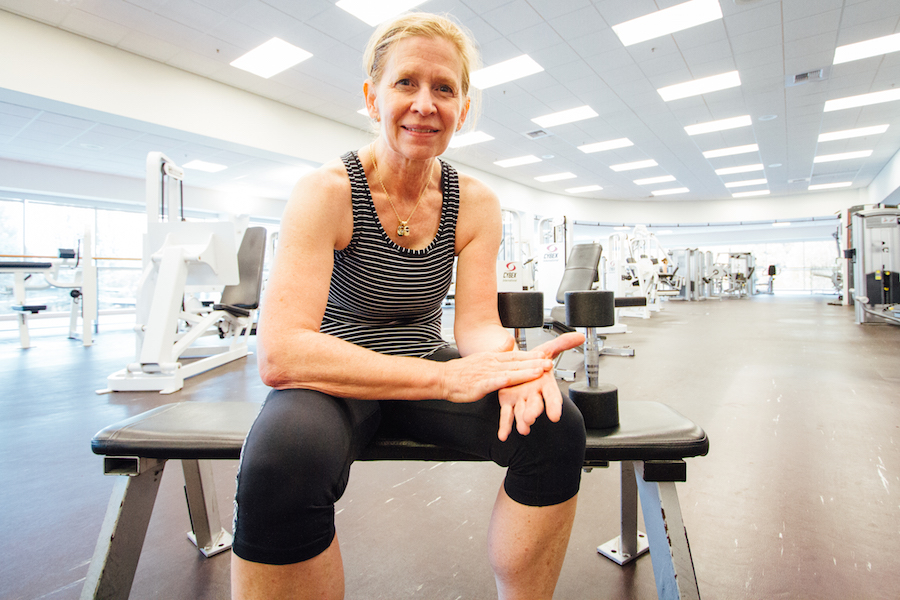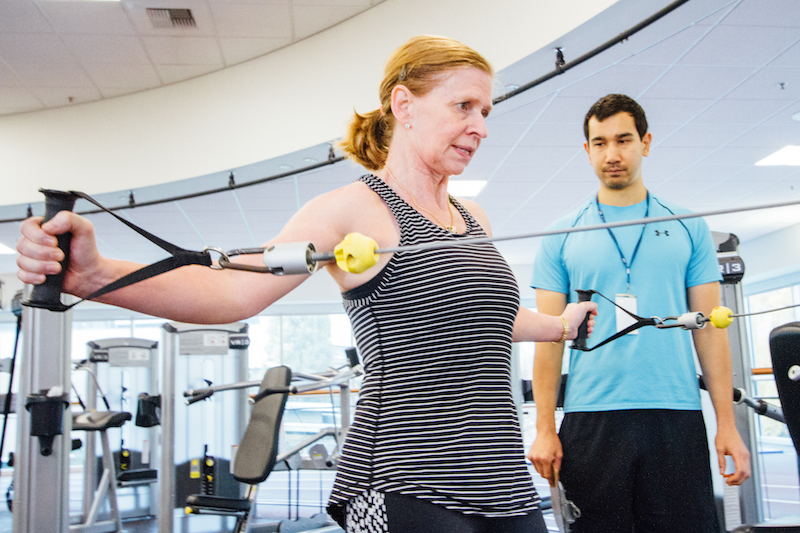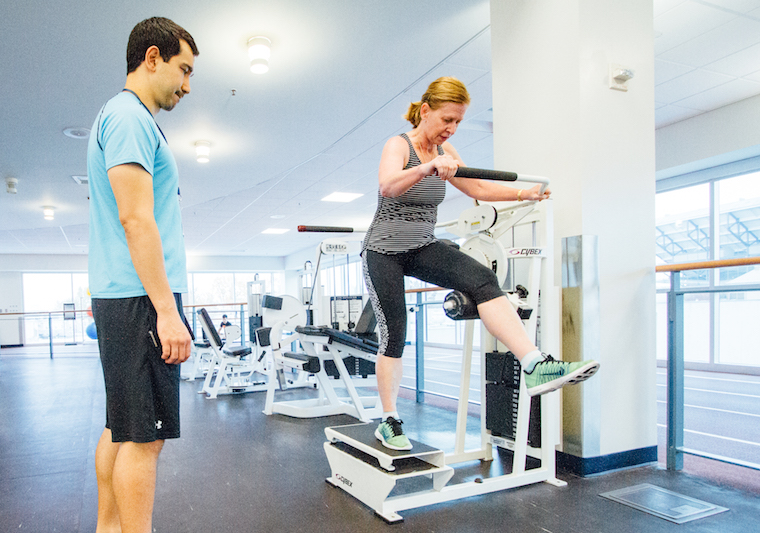
Faculty Friday: Barbara Goff
What happens when you’re a surgeon who relies on her hands for intricate operations and one day you lose the upper body strength needed to perform them? Ask Barbara Goff.
The chair of the Department of Obstetrics and Gynecology, Goff serves as professor and division director of Gynecologic Oncology at the University of Washington and the Seattle Cancer Care Alliance—a role that regularly confronts the complex, high-stress work of dealing with gynecologic malignancies such as ovarian cancer. She’s also the Surgeon in Chief of the Operating Room, working with the leadership of the OR on implementing changes to cut down on costs and increase the efficiency and quality of surgery conditions.
But 15 years ago, her career as a surgeon was critically imperiled when a herniated disc—likely due to “endless hours in the operating room with poor posture”—led to the loss of major function in her right hand, leaving her unable to perform surgery.
“As a surgeon, this was devastating,” she recalls. But instead of panicking, she persevered.
After emergency surgery to repair damage to her spinal cord, she was referred to physical therapy to rebuild the weakness in her upper body. Even after the physical therapy helped her regain function in her hand, she knew she needed to keep her upper body strong and was determined to use the setback to return stronger than ever.
Her physical therapist referred her to the personal training program offered through UW Recreation at the Intramural Activities (IMA) Building on Seattle’s campus.
“I couldn’t believe how inexpensive it was for a faculty member to join this amazing gym that has a running track and a pool and a bazillion classes and countless exercise machines,” Goff says. “It’s helped me become a true athlete.”

Goff works out under watch of Kevan, her trainer. (Photo: Jacob Hilsabeck)
Since losing—then regaining—function in her right hand, Goff has gone on to compete in half-marathons and cycle competitively. When she broke her fibula skiing last January, the framework was already in place to get her back on track.
She and her trainer, Kevan, a certified strength and conditioning specialist and former amateur boxer, worked to bring her back to speed—and beyond. He crafted a training program rich in variety to simultaneously strengthen muscles and Goff’s cardiovascular system, while also emphasizing mind-body connection.
Now, almost a year removed from the skiing injury, Goff is up to running 8 miles on weekends.
“I can tell him anything and he knows he can tell me anything,” she says of her eight-year working relationship with Kevan. “I think it is important that you find someone you work well with.”
For Goff, that weekly hour of training is “probably my favorite hour of the week.” She says it helps clear her head and get her mind off of work, but that the benefits also carry over into the operating room as well: strengthening her mental approach and ability to connect with patients.
“I’m able to tell my own story about overcoming setbacks and how important exercise is to that,” she says of those patient interactions. “This lets me use my story of significant injury, personal training and how—if you stick with it—you can safely progress.”
Goff says that in addition to sharing the positives of participating in a training program with patients, she’s also proselytized the benefits of physical activity to her physician colleagues.

(Photo: Jacob Hilsabeck)
“I’ve referred a whole bunch of people from my department to UW Recreation,” she says. “I think Kevan and their other trainers have a good style for physicians who have very high-stress jobs.”
Goff confides the most challenging aspect of her work as a doctor is “when the disease process keeps us from curing patients,” but adds that “the fact that UW Medicine is on the cutting edge of so many wonderful treatments makes it exciting to come to work every day.”
When work ends, the IMA is there: a means of momentarily disengaging from the hospital’s hubbub, but also recharge for the next day’s endeavor.
“You’re going to be sore initially, but the payoff is great. I think it’s better for my head than even my body.”
Barbara Goff holds an M.D. from University of Pennsylvania. She was a resident in Obstetrics and Gynecology Brigham and Women’s Hospital and a fellow in Gynecologic Oncology at Massachusetts General Hospital. She received her Certificate in Medical Management from the University of Washington in 1999.
UW Recreation provides safe, accessible, and dynamic recreation experiences to engage the UW community in growth and wellbeing. From classes to personal training, our staff is passionate about helping you achieve your fitness and wellness goals. Learn more at recreation.uw.edu. Additional reporting by Matthew Leib.